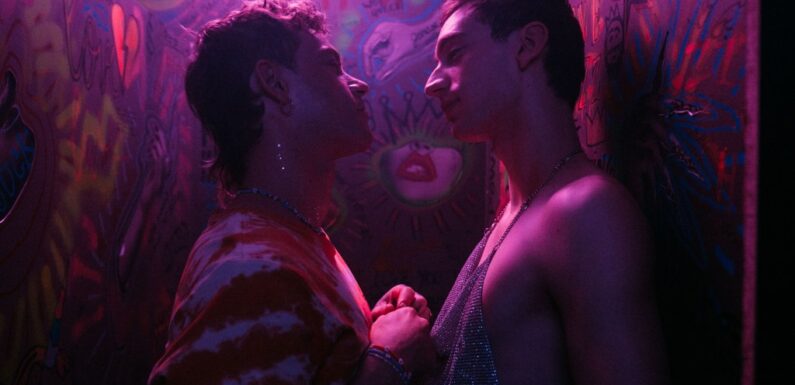
TORONTO: “Humanist Vampire,” “Solo” Heat Up Market for Toronto’s Quebec Feature Slate
By Jennie Punter
Toronto has long been a go-to place for Quebec filmmakers to launch new work, connect directly to the U.S. marketplace and, by extension, propel their careers to the next level — Denis Villeneuve, Phillippe Falardeau and Jean-Marc Vallée, for example, premiered most of their early films here.
Many of this year’s bumper crop of mostly world-premiering Quebec titles explore less familiar corners of society — First Peoples and newcomer stories, the drag scene — and there are also fresh takes on romantic dramedy (Monia Chokri’s “The Nature of Love”), true-story-inspired WWII drama (Louise Archambault’s “Irena’s Vow”) and horror comedy (Ariane Louis-Seize’s “Humanist Vampire Seeking Consenting Suicidal Person,” which just nabbed Venice Days GdA Director’s Award).
Five of the festival’s eight Quebec features are directed by women. Sophie Dupuis, whose third film, the drag-scene character study “Solo,” told Variety that support from government funding agencies Telefilm and SODEC (Quebec) has improved for women filmmakers in recent years. “When it comes to bigger budgets, we’re getting there. I’m happy for Quebec to have all these films by women being celebrated around the world.”
Dupuis’ long interest in the creative versatility of drag artists and the political aspect of their performance inspired “Solo,” which stars former TIFF Rising Star Théodore Pellerin.
“To have a queer story on the TIFF Gala screen and to celebrate this together on the red carpet is huge,” Dupuis said. “The majority of the cast is queer, and we know this kind of film can change lives — even save lives. It can be a validation for some people who need that right now.” SND Films is handling world sales.
Henri Pardo’s debut fiction feature “Kanaval” — in which a young Haitian boy sneaks out to experience the annual carnival before fleeing to Quebec with his mother — allowed the actor-turned-director to “work towards my Haitian culture,” which felt far away after years living in Montreal, he told Variety.
“A lot of stuff about Haiti has been completely forgotten. It’s a beautiful culture, and now I’ve got the power now to latch on to that and to put it out there for all of us because it’s not just important — there are beautiful stories there.”
Pardo, whose new film was part of the inaugural Project Development Accelerator initiative from the Canadian Film Centre and Netflix, is a founding member of Montreal’s Black on Black Film collective and is developing new projects through his production company Black Wealth Media.
He explained, “Quebec was really late in progressing its diversity compared to the States and Toronto, so we had to create our own space. What are our stories, and how do Black people in Canada fit into this global story? We want to write the stories that were missing before.”
Montreal distributor and aggregator H264, which launched its world sales arm in June, lands in Toronto with the North American premiere of “Humanist Vampire” — a hot property, having picked up the director’s award at Venice Days. H264 founder and president Jean-Christophe J. Lamontagne told Variety he expects to confirm France and U.S. distribution for the film in Toronto.
After a rough few years, the cinema biz and audiences are bouncing back in Quebec. “There’s (former Les Films Séville president) Patrick Roy’s new company Immina Films, and we just had record breaking box office this year with many Quebec titles, so jumping into the future-film feels like the right timing,” said Lamontagne, whose company is also has world sales rights to Quebec auteur Denis Côté’s “Mademoiselle Kenopsia.”
“International though is a challenge, but our approach is to focus on films we are representing and our strong presence at festivals,” he continued. “And also our model is hybrid, we don’t do world sales in a traditional form because we’re also an aggregator — we are kind of a two-headed dragon. With everything now happening in the market, being a smaller company makes us more creative in our approach.
“There’s more space now for a new generation of storytellers,” he added. “And I think audiences are ready to discover them.”
Other Quebec features not mentioned above include Chloé Robichaud’s “Days of Happiness” and Charles-Olivier Michaud’s “Ru.”
Read More About:
Source: Read Full Article